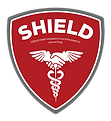Trainings
SHIELD offers trainings for personnel in public safety and criminal justice who are on the front lines of responding to the overdose crisis. Our curricula provides tools and key information to help them reduce their occupational stress and burnout and improve public safety. Our trainings are specifically tailored for public servants in these fields: Law Enforcement, Fire/EMS, Prosecution, Public Defense, Courts, and Corrections.
SHIELD trainings are modular and adaptable. We deliver directly to agencies, through regional and state institutions, and through police academies and in-service education programs. We can deliver trainings directly or using a training-of-trainers model.
Our trainings are evidence-based and delivered peer-to-peer. A peer in the field being trained partners with a behavioral health professional to provide key tools and information on how to access resources within your office as well as local and statewide programs that can support lasting change.
Unlike off-the-shelf trainings, the SHIELD team customizes the curriculum to your department and personnel needs. By providing local information and resources, your employees will be able to immediately operationalize the SHIELD tools.
Trainings can be held in-person or virtually to accommodate any size audience and reach as many people as possible. We ask all participants to complete a short pre and post-survey to provide data and feedback so we may continue to improve the curriculum, develop the evidence base, and provide the most salient training to your personnel.
Planning Process
In its most comprehensive form, SHIELD helps to develop linkages, relationships, and partnerships between criminal justice actors and the public health sector in local jurisdictions. In this version, we work with local partners to connect with or create a community working group comprising appropriate local stakeholders in order to customize the curriculum. In addition to helping to demonstrate the value of SHIELD trainings and build buy-in with local agencies, the process described in the graphic below has many operational benefits. These include building collaborative synergy, opening channels of communication, and removing bottlenecks that interfere with cross-sector collaboration.

Research & Evaluation
The SHIELD training model’s core curriculum has been extensively evaluated. It has been found to be effective in boosting officer attitudes and intentions about using best practices that deliver multiple benefits:
-
Improving public safety by reducing addiction and drug-related crime in the community.
-
Increasing officer wellbeing and retention by reducing stress, improving police morale, occupational safety, and job satisfaction, while also facilitating community level collaboration
In response to many requests, the SHIELD team has adapted the core law enforcement curriculum to additional sectors of public safety and criminal justice. These include Fire/EMS, Prosecution, Public Defense, Courts, and Corrections, with more planned.
All curricula are evidence-based, and developed by legal, health, and educational experts at Northeastern University School of Law, based upon extensive consultations with professionals in the field, qualitative interviews, and pilot trainings. All trainings provide continuing education credits.
The SHIELD 2.0 Study
In early 2024, we received support from NIH/NIDA for the next phase of our research developing the SHIELD model. This “SHIELD 2.0” study is designed to better understand the relationship between the behavioral health workforce (substance use treatment, harm reduction, and other professionals) and law enforcement. This project will build and test interventions that equip the behavioral health workforce to more effectively interface with law enforcement. Our goal is to reduce the number of adverse encounters between police and program staff and clients, optimize the public health and public safety benefits of harm reduction and substance use treatment services, and improve outcomes for program staff and clients, police, and the communities they serve.
Technical Assistance
In addition to delivering trainings, the SHIELD team can provide technical assistance. Our comprehensive training and capacity building package includes:
-
Guiding planning, customization, adaptation, and creation of local trainings
-
Train-the-trainer services
-
Training implementation
-
Fidelity control
-
Mixed-methods evaluation
-
Econometric, cost-effectiveness, and epidemiological modeling
-
Research communication and translation
-
Community relations
-
“Champions” program to cultivate interdisciplinary law enforcement leaders
.png)